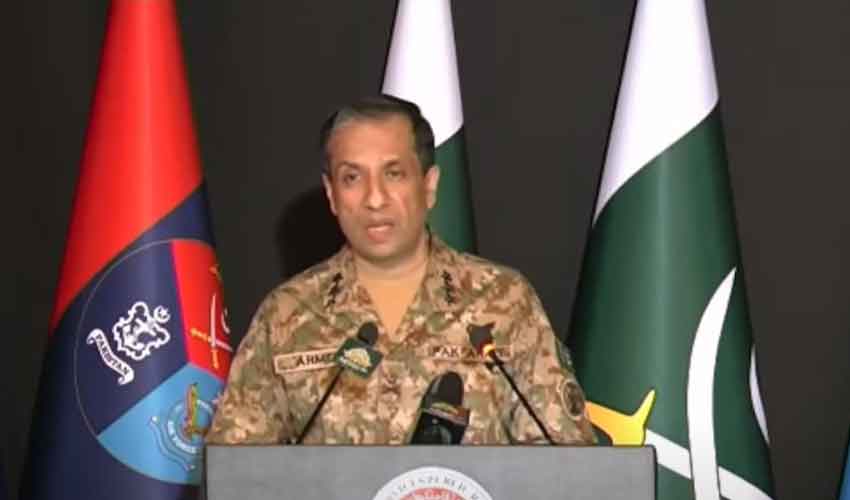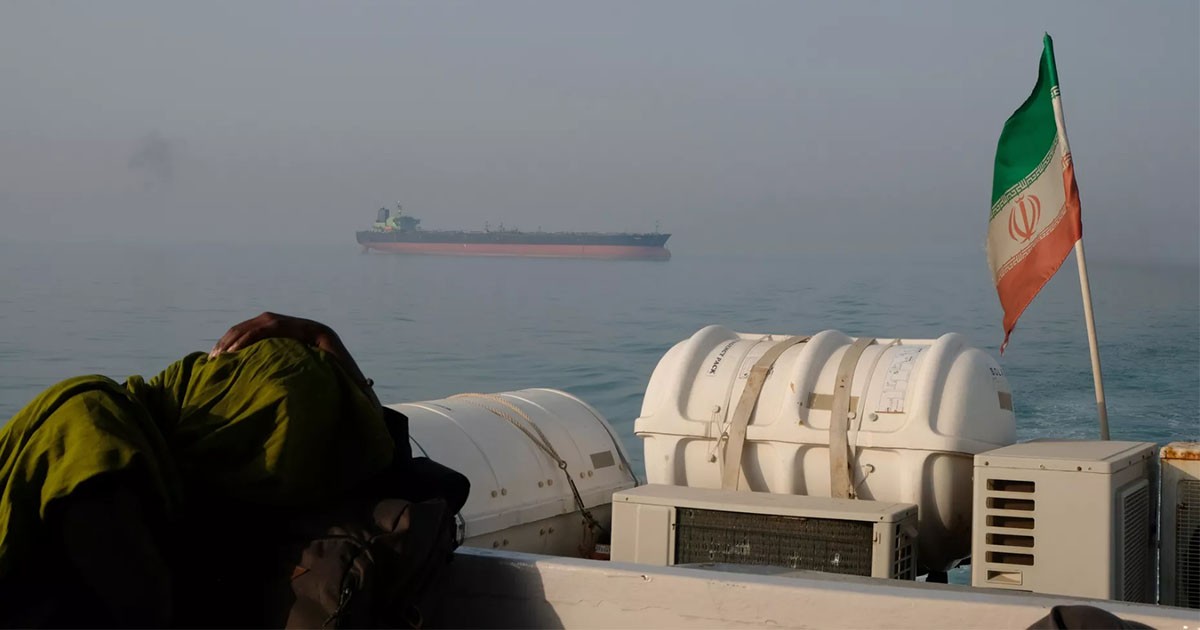Director General of Inter-Services Public Relations (DG ISPR), Lieutenant General Ahmed Sharif Chaudhry, has reiterated that Pakistan remains committed to peace, despite recent military tensions with India. However, he firmly warned that Pakistan will not be intimidated or coerced.
“India is not the United States, and Pakistan is not Afghanistan. India is not Israel, and Pakistan is not Palestine,” the military spokesperson stated in an interview with Anadolu Agency.
Read more: Former US President Biden diagnosed with ‘aggressive’ prostate cancer
“We will never submit to Indian hegemony. The sooner India accepts this reality, the better it will be for regional stability and global peace,” he added.
His remarks came shortly after the successful execution of Operation Bunyan-um-Marsoos, a large-scale retaliatory response to what Pakistan described as India’s unprovoked aggression.
As part of the operation, Pakistan’s armed forces launched precision strikes targeting several Indian military sites across different regions. The strikes, described by officials as “measured and accurate,” were in response to continuous Indian aggression along the Line of Control (LoC) and within Pakistani territory. India had claimed it was targeting terrorist hideouts.
During the conflict, Pakistan reportedly downed six Indian fighter jets — including three Rafales — and numerous drones. The confrontation ended on May 10 after a U.S.-brokered ceasefire, concluding over 87 hours of hostilities between the nuclear-armed neighbors.
According to ISPR, Indian strikes resulted in the martyrdom of 53 individuals — 13 military personnel and 40 civilians.
The military escalation followed a deadly attack in Indian Illegally Occupied Jammu and Kashmir (IIOJK) that killed 26 tourists. India blamed Pakistan without presenting any evidence, a move Lt Gen Chaudhry dismissed as baseless.
Speaking to the Turkish news agency, he stated that India had failed to substantiate its allegations regarding the incident in Pahalgam. He accused New Delhi of exploiting such events as a pretext for terrorism and advised India to stop using such tactics.
He further asserted that terrorism, extremism, and hate are internal issues plaguing India, exacerbated by state actions against minority communities, including Muslims and Sikhs. According to him, this fuels further extremism and unrest.
He also claimed that India actively supports terrorism within Pakistan. “There is substantial evidence linking India to terrorist activities on our soil, and we have submitted this evidence to the International Court of Justice,” he said.
Swift Retaliation if Provoked
Lt Gen Chaudhry emphasized that while Pakistan seeks peace and adheres to the ceasefire agreement of May 10, it reserves the right to defend itself.
“If India provokes or attacks us again, our response will be swift and decisive. We are a resilient nation that does not bow to aggression,” he asserted.
On the Indus Waters Treaty
Separately, the DG ISPR warned India against any attempts to block Pakistan’s water under the Indus Waters Treaty.
“Anyone thinking of stopping the flow of water to a nation of over 240 million people is delusional. Such actions would have long-lasting and far-reaching consequences,” he warned during a separate media interaction.
He reaffirmed the professionalism of the Pakistan armed forces, emphasizing their adherence to both national directives and international agreements.
Indian Military Losses
ISPR confirmed that during the recent conflict, India lost six aircraft — including Rafale and Mirage 2000 jets — as well as an advanced Russian-made S-400 air defense system.
Prime Minister Shehbaz Sharif also confirmed these losses, acknowledging the downing of six Indian warplanes.
“We deliberately limited our response. We could have inflicted greater damage but chose restraint,” Lt Gen Chaudhry noted.














